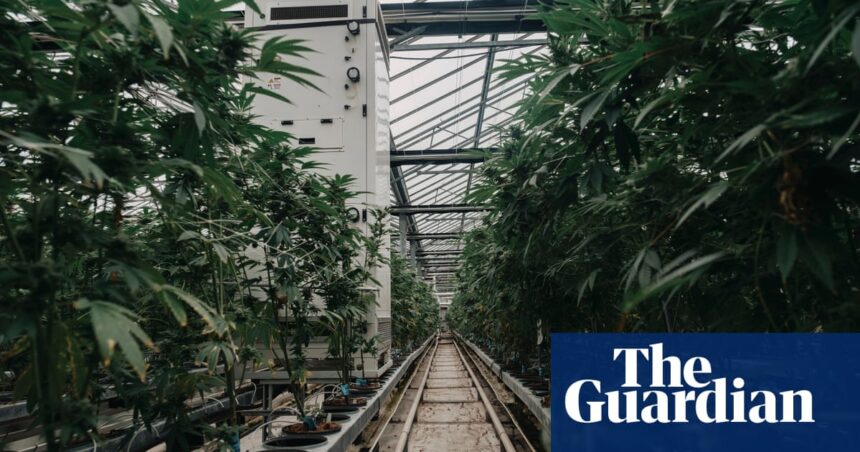The US Drug Enforcement Administration has proposed new rules that mean, for the first time, medications containing delta-9 THC from the cannabis plant could be eligible for approval by the US Food and Drug Administration (FDA). The rules, if enacted, would move the cannabis plant from a schedule I to a schedule III substance, so its federal legal status would shift drastically from a narcotic with “no accepted medical use” to a regulated medication.
Nearly 4 million Americans are already using medical cannabis in states where it’s been legalized, contradicting federal laws. Given that so many Americans already have access to some form of medical cannabis, it’s unclear whether pharmaceutical companies would benefit from seeking FDA approval for cannabis-based drugs.
Igor Grant, director of the Center for Medicinal Cannabis Research at the University of California, San Diego, thinks that the way legalization happened might discourage pharmaceutical companies from investing in cannabis.
“The states have got way ahead of the federal government,” he said. “Putting it the other way, the federal government has been way behind the states and public opinion.”
Jahan Marcu, who wrote the book Cannabis Innovations on hemp and cannabis regulation, agrees, and is “skeptical about the notion that there will be a sudden wave of cannabis-derived drugs submitted for FDA approval following rescheduling”.
States that have legalized cannabis have been allowing it to be sold outside the federal regulatory system for a long time now, making FDA approval less necessary. Marcu added that estimates suggest consumers already have millions of hemp- and cannabis-based products to choose from.
That’s hard for drug companies to compete with. Grant notes that “because of this disconnect, it may not actually be very profitable for pharmaceutical companies to get into this because they’re competing with cheap products that people can get through dispensaries.
“So what’s the financial incentive for big pharma to do that? I don’t know. I’m not an economist, but I think that may be a consideration here.”
On the other hand, some pharmaceutical companies have already put dollars towards exploring medical cannabis. In 2022, Pfizer acquired Arena Pharmaceuticals, which focuses some of its research on medical cannabis.
Dr Peter Grinspoon, a physician and Harvard Medical School instructor who wrote Seeing Through the Smoke on medical cannabis, says “it’s sort of an interesting dance between the pharmaceutical companies and the cannabis proponents”.
“The pharmaceutical companies resisted every single state-level initiative [for cannabis legalization], because why would they want people to grow something for free when they could be selling them an expensive drug?” he added.
One study estimated that cannabis legalization has already cost pharmaceutical companies billions of dollars. A survey published in the Journal of the American Medical Association (Jama) showed that more than half of adults using cannabis to manage chronic pain had reduced their use of prescription opioids and over-the-counter drugs. Still, businesses that are threatened by cannabis legalization may realize there is only one way to compete, says Grinspoon: “Now that legalization is sort of winning the day, I think some of the pharmaceutical companies are buying into some of the cannabis companies. If you can’t beat them, join them. Same with the alcohol companies.”
But it’s a lot more expensive to develop a drug for FDA approval than it is to develop a CBD soda, for example.
“There’s a whole process, phase one, phase two, phase three studies. It costs hundreds of millions of dollars,” says Grinspoon.
Typically, pharmaceutical companies need to first prove a drug is promising with animal testing, then do multiple phases of studies with larger and larger groups of people, sometimes thousands. At any point in this process, the drug could prove to be insufficiently safe and effective, and never make it to market. A recent study estimated that it costs nearly a billion dollars to bring a new drug to market if you account for the cost of failed trials as well as successful ones.
Despite these hurdles, one drug company has already had success.
Jazz Pharmaceuticals, headquartered in Ireland, developed Epidiolex, a very pure form of CBD that’s FDA-authorized for rare seizures. Unlike delta-9 THC, CBD is already federally legal because of the 2018 Farm Bill.
Marcu says that, theoretically, pharmaceutical companies could more easily profit from medical cannabis research if they could get drugs approved in multiple countries, especially those where cannabis is less readily available. Epidiolex is approved in the EU and South Korea as well as the US. In an email, a Jazz Pharmaceuticals spokesperson said the company is currently working on getting the drug approved in Japan as well, and that they are evaluating other, undisclosed cannabinoid-based drugs.
If most pharmaceutical companies end up deciding that it’s just not profitable to research medical cannabis, we might never fully understand the plant’s medical potential, says Grinspoon.
The FDA approval process helps researchers refine medications and make them more effective, he said: “Are there different doses that are better for different populations? Does the tincture work better for some people? Does an inhaler or skin patch or suppository work better for some conditions?” Precise formulations of different cannabinoids could also have effects we can’t predict, he continued: “Imagine if we could hone that down and really get more designer drug about the effects we’re seeking. [It could be] remarkable what the pharmaceutical companies come up with.”











